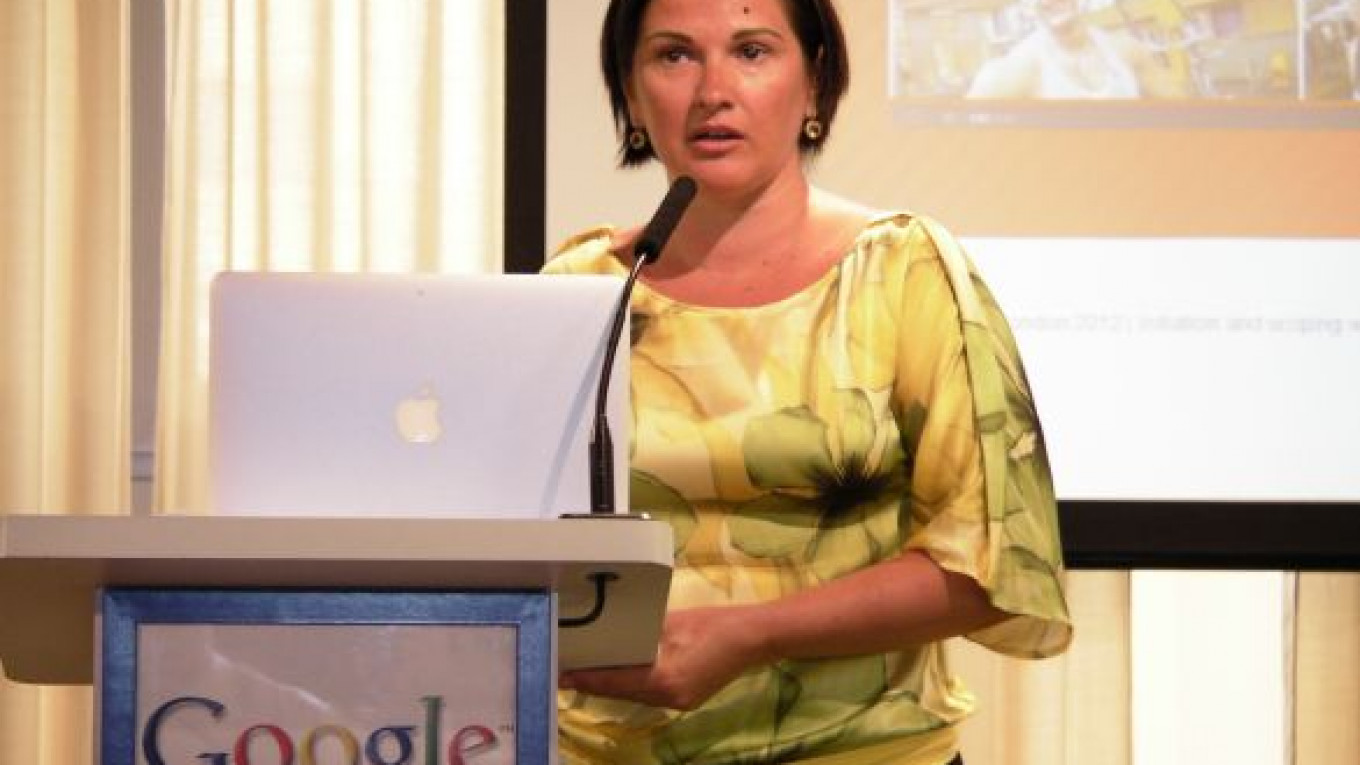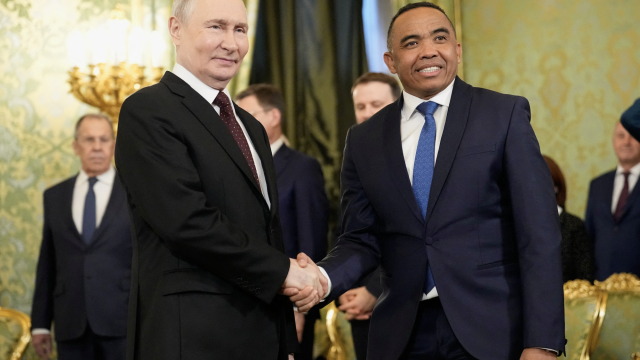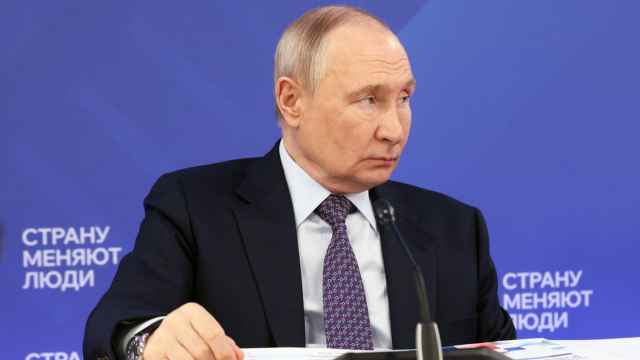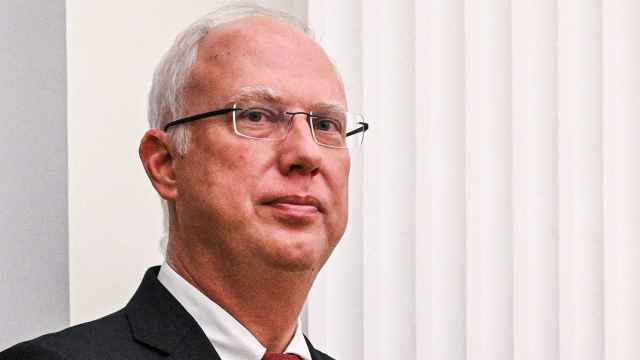Google executives on Wednesday expressed their determination to comply with Russian law following a court battle with the authorities but reserved the right to disagree with how the law is interpreted.
The IT company has been involved in a dispute with the Federal Consumer Protection Service regarding the blacklisting of a YouTube video allegedly containing instructions on how to commit a suicide.
"I'd like to clarify that Google doesn't have any conflict with the Russian government," Julia Solovyova, a recently appointed head of Google Russia, said Wednesday at a press event marking the 8th anniversary of the YouTube video sharing service. "This was a specific case concerning one specific video. Just like any other company, [Google] complies with the law. They asked us to remove the video, and we've done that."
However, there have recently been some fiery exchanges between the parties, with the watchdog accusing Google of not "following the requirements of Russian law," and the company saying that they didn't think that the video in question contained illegal material.
"We reserve the right not to agree with [the watchdog's] interpretation of the law. When it happens, we let the court settle the dispute. Whether we win or lose, it depends on a lot of things. We have different experience in that respect in different countries," Solovyova said.
Alla Zabrovskaya, Google's public relations director, told Kommersant earlier this year that the safety of users had always been a top priority for the company.
"Just a reminder," Tom Pickett, YouTube's global head of content operations, said Wednesday. "We don't produce content ourselves. We rely on our users. Over a million creators around the world are producing content for [us].
He said YouTube had thousands of channels making over $100,000 per year each from advertising.
Danielle Tiedt, YouTube's vice president for marketing, said she was amazed by Russians' creativity. She said 67 percent of them were engaged in some sort of a creative activity on a weekly basis. Many of them want to share what they create on YouTube, she added.
Based on the volume of the Internet traffic going to and from YouTube servers, Russia is in the top five countries, said Robert Kyncl, global head of content at YouTube. And the user-base in Russia is growing twice the global rate, Tiedt said.
Solovyova, referring to a Comscore survey from December last year, said 50 million Russian people used the service every month, with 24.8 million of them viewing videos on the website and the remaining ones watching YouTube videos posted elsewhere.
YouTube video-sharing service was originally created in 2005 by three U.S. nationals, only to be acquired a year later by the world's largest Internet search engine for $1.65 billion.
Contact the author at [email protected]
A Message from The Moscow Times:
Dear readers,
We are facing unprecedented challenges. Russia's Prosecutor General's Office has designated The Moscow Times as an "undesirable" organization, criminalizing our work and putting our staff at risk of prosecution. This follows our earlier unjust labeling as a "foreign agent."
These actions are direct attempts to silence independent journalism in Russia. The authorities claim our work "discredits the decisions of the Russian leadership." We see things differently: we strive to provide accurate, unbiased reporting on Russia.
We, the journalists of The Moscow Times, refuse to be silenced. But to continue our work, we need your help.
Your support, no matter how small, makes a world of difference. If you can, please support us monthly starting from just $2. It's quick to set up, and every contribution makes a significant impact.
By supporting The Moscow Times, you're defending open, independent journalism in the face of repression. Thank you for standing with us.
Remind me later.






